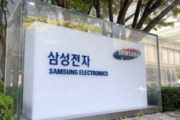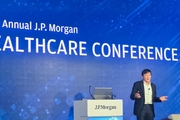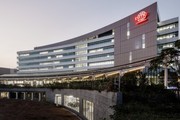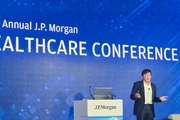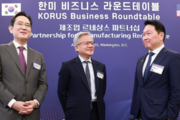
[News Space=Reporter seungwon lee] Celltrion announced on the 29th that it has been selected as the preferred bidder for the acquisition of a biopharmaceutical production plant located in the United States, beating out two global companies, and is now on the verge of securing a production base in the United States.
The plant Celltrion is pursuing for acquisition is a large-scale cGMP production facility for active pharmaceutical ingredients (DS) owned by an undisclosed global pharmaceutical company. Located in a major pharmaceutical industry cluster in the United States, the facility has been producing key biopharmaceuticals, including anticancer drugs and autoimmune disease treatments, for several years.
Details regarding the plant, including the name of the acquired company, will remain confidential until the signing of the final contract, which is expected to take place in early October of this year, following consultation between the two parties.
Once the plant acquisition is finalized following due diligence, Celltrion is expected to be able to completely resolve its US pharmaceutical tariff risk. This means the comprehensive tariff response plan presented by Celltrion Group Chairman Seo Jung-jin at a meeting last May is proceeding smoothly.
In other words, following the preemptive measures taken to respond to tariffs, such as transferring two years' worth of inventory to the U.S. and expanding contracts with local CMOs, the company has completed the acquisition of a local factory, a fundamental solution to hedge tariff risks, and is expected to be free from all potential tariff risks in the future.
Once the acquisition is finalized, Celltrion is expected to be able to produce its main products sold in the United States locally, thereby completely avoiding pharmaceutical tariffs on those products.
Furthermore, 50% of the current cGMP facility will be exclusively responsible for producing the acquired company's biopharmaceuticals for five years through a CMO contract, enabling immediate revenue generation following the acquisition. Consequently, a rapid return on investment is expected. The remaining 50% will be used to produce Celltrion's key products currently sold in the US.
Celltrion plans to immediately begin additional capacity expansion, taking into account trends in US pharmaceutical sales and the timeline for new product launches. Upon completion, production capacity will be 1.5 times that of its Songdo Plant 2. The company's strategy is to enhance its local market responsiveness by expanding local production capacity while also ensuring that subsequent new product lines, slated for US sales, are quickly freed from tariffs.
With the completion of the future facility expansion, the local plant is expected to handle the entire pharmaceutical production cycle for US supply, from raw materials (DS) to finished products (DP) and even a packaging logistics hub. Celltrion has already established a local sales network, and this will allow it to not only improve costs through direct manufacturing but also reduce logistics costs. This, in turn, is expected to enhance its competitiveness through a lower cost ratio.
Furthermore, Celltrion is expected to significantly reduce the time and investment costs associated with building a new cGMP production facility by acquiring one. This acquisition will allow the company to secure an ideal local business ecosystem encompassing research, production, and sales in the US, the center of the global pharmaceutical market, in the most efficient manner possible. Furthermore, Celltrion will also secure the title of the first Korean biopharmaceutical company to most quickly hedge against pharmaceutical tariff risks.
A company official said, "Once Celltrion completes this plant acquisition, it will have secured the optimal facility in the U.S. with both economic feasibility and business viability, which will allow it to completely resolve U.S. tariff risks in the shortest possible time." He added, "As an opportunity is being created to accelerate the market share of major products currently sold in the U.S., we will do our best to capitalize on this opportunity and achieve a quantum jump."








